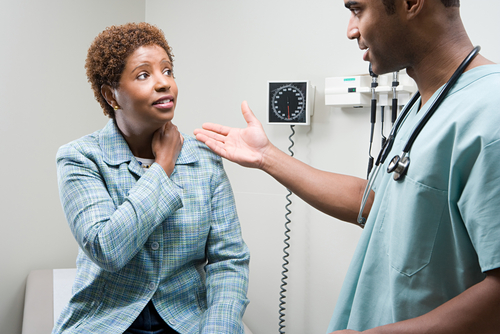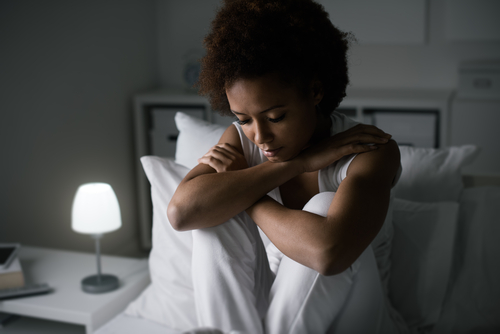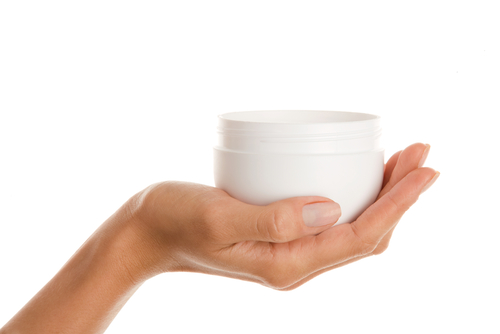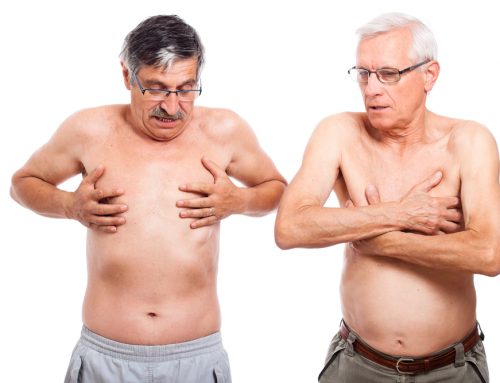Although sexual dysfunction is a common element of breast cancer, it’s rarely discussed. But these issues have a huge impact on women’s overall quality-of-life during and after breast cancer treatment. So here’s some helpful information about breast cancer and sex.
Roughly 60 percent of women below the age of 45 experience sexual dysfunction during their breast cancer treatment. This number does decrease by about 20 percent after treatment is completed. But that still leaves a lot of women with a sexual dysfunction.
To add to that, most of the women who had a sexual dysfunction didn’t talk about the problem with a health professional.
What is causing this common problem to occur? And what can be done to prevent it?
Types of Sexual Dysfunction

To start, we should look at what a sexual dysfunction is.
There are a few types of sexual dysfunction:
- Vaginal spasm
- Changes in sexual arousal and orgasm
- Sexual disinterest
- Loss of libidio
- Pain due to vaginal dryness
During and after your breast cancer treatment, you may experience one or several of these problems. But you don’t need to feel ashamed about it. If any of these problems come up, make sure you talk to your physician to figure out the cause and find a solution.
Physical Reasons for Sexual Dysfunction

As you know, breast cancer puts the body through a lot of physical strain and changes. You may think that the cancer itself is responsible for causing sexual dysfunction. But this is not usually the case. It is actually the breast cancer treatment that causes most sexual dysfunction problems.
Chemotherapy and radiation are often the two biggest causes.
The drugs used in chemotherapy can damage your ovaries and cause various hormonal changes. As a result, you may experience a loss of interest in any sexual activity. Further, younger women often experience early menopause after receiving chemotherapy. This early menopause can be temporary or permanent. But regardless of how long it lasts, it is damaging to many sexual functions in the body.
Radiation has similar effects on your body – it damages the ovaries and triggers menopause. But it also can irritate the lining within the vagina. This decreases the production of moisture in the vagina during sexual excitement and can make intercourse painful. Long-term radiation can also damage the vaginal walls. This makes the vagina shorter and less capable of expanding. Again, these effects cause pain during intercourse.
Surgeries and medications can also adversely affect your body. Whole and partial mastectomies decrease your ability to feel pleasure when the breast is touched. This is because the tissue and nipple are often removed. Meanwhile, medication for nausea, pain, or depression often have the side effect of decreasing libido and making it difficult to orgasm.
Emotional Reasons for Sexual Dysfunction

Many types of sexual dysfunction—most notably loss of libido and sexual disinterest—are caused by emotional changes.
We’ve talked before about how you go through a huge range of emotion during and after breast cancer. Well, some of these lead to sexual dysfunction.
Depression is most often the reason for loss of libido and disinterest. When you’re already struggling to continue your regular life, sex is likely the last thing on your mind. Moving past these feelings is often challenging. If you find that you’re struggling to handle your depression, talk to a therapist or other mental health professional.
While depression is a common emotional cause for sexual dysfunction, it’s far from the only one. Stress about your breast cancer treatment or your new life can reduce your sexual interest. You may feel stressed about your relationship.
And you may be concerned about the changes in how you look.
Decreased self-esteem is another common cause because so many women experience it.The changes to your body often result in you feeling undesirable or unfeminine. There are numerous ways to overcome this. But it may take time, as does managing any emotional challenge.
Treating Sexual Dysfunction
There are fortunately several ways you can treat sexual dysfunction. While some of these methods focus just on you, most of them require the involvement of both you and your partner.
Products and Medicines

There are a huge range of products and medicines designed to ease sexual dysfunction.
Vaginal moisturizers and lubricants are commonly used to address problems with vaginal dryness. Moisturizers are designed to keep the vaginal lining moist and promote healthy pH levels. It requires regular use two to three times a week and can often replace the need for lubricants. Unfortunately, most vaginal moisturizers are expensive and insurance will not cover them.
Lubricants are less expensive, depending on the type you get. They can be bought at drugstores or online. And they can work better than moisturizers for alleviating pain caused by mild vaginal dryness. Some of their downsides include that they may need to be re-applied during intercourse. They also do not reduce pain if you are suffering from severe vaginal dryness.
You may also benefit from taking a vaginal estrogen replacement. These replacements release estrogen into the body over the course of a few days to several months. They are can used to treat vaginal dryness. And they are often regarded as being safer than creams, pills, or estrogen patches.
However, researchers are not sure about how estrogen replacements affect women who have had breast cancer. So, it is extremely important that you discuss this option with a physician first.
Sexual Counseling

If your partner is willing, marital or sexual counseling is often helpful if you have a sexual dysfunction.
It may be uncomfortable discussing private matters with a counselor. But it gives you and your partner the opportunity to address emotional and physical factors that may be making sexual intimacy difficult.
Most sexual counseling sessions for women with breast cancer focus on helping you rediscover your beauty. You may be encouraged to look at and touch your new body. Rather than focusing on what has changed, look at your body as a symbol of strength. It went through a lot during your breast cancer treatment. And it will continue working as your recovery physically and emotionally.
Beyond that, sexual counseling will help you and your partner find ways to reduce pain. This may involve exploring new positions that reduce pressure on painful areas. Extra pillows can be used to support your body. And your partner may need to be more delicate in their touch to ensure your feel pleasure instead of pain.
Lifestyle Changes

It’s likely that you’re already making lifestyle changes. But there are a few changes that both you and your partner can make to maintain a healthy sex life. We’ve included just a few here, but your physician or sexual counselor may have some additional ideas:
- Exercise regularly
- Limit alcohol consumption
- Reduce stress
- Stop smoking
- Keep a well-balanced diet
- Maintain good sleep habits



![Why Is Forgiveness So Important to Cancer Patients? [Podcast Ep. 26]](https://imtakingcharge.com/wp-content/uploads/2018/08/shutterstock_1008129595-500x383.jpg)
![How to Piece Together Your Post-Cancer Life [Ep. 24]](https://imtakingcharge.com/wp-content/uploads/2018/07/Optimized-chuttersnap-478260-unsplash-500x383.jpg)

![Sorting Body Image Issues After Breast Cancer [Podcast Ep. 23]](https://imtakingcharge.com/wp-content/uploads/2018/07/shutterstock_1062595838-500x383.jpg)
Leave A Comment